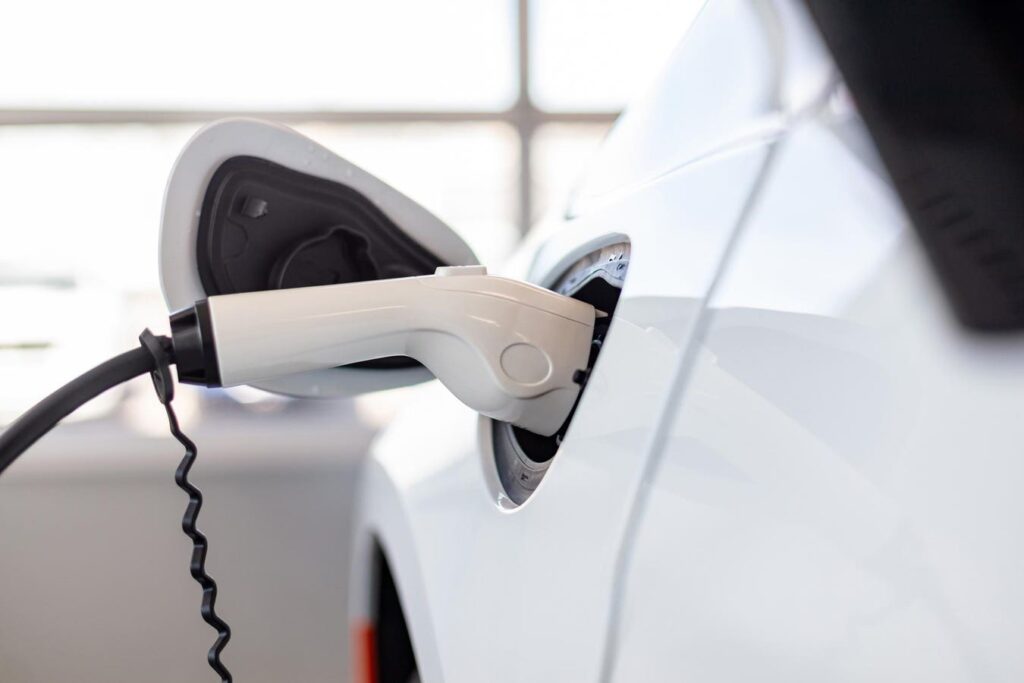Seth Lederman, CEO of Frannexus, award-winning franchise consultant and author of “Profits are Better Than Wages.”
Recent forecasts predict that by 2030, as many as 35% of all automobile sales in the U.S. will be electric vehicles (EV). According to the U.S. Department of Energy, that means nearly 33 million car users will switch from gas-powered vehicles to electric-run ones. The first electric car was built in 1884, but the same hurdles that plagued the industry nearly 200 years ago are still slowing their popularity in the U.S. As with most things in the marketplace, entrepreneurs must help the electric automotive industry explode globally by overcoming the many hurdles that the industry still faces.
Having been brought onto the board for the first EV franchise—and being an EV owner myself—I’ve learned about and experienced many of the benefits and challenges that come with owning this type of car. Being in the franchise industry for decades, I have witnessed how these structures are able to overcome the limitations that can often stifle a heavily regulated industry. Therefore, I saw an excellent opportunity to effectively meet the EV challenges head-on.
For newer entrants like myself looking to overcome the hurdles of the industry, there are a few considerations to keep in mind.
What hurdles does the EV industry face?
When it comes to reliability, power failure fears are real. And with the charging industry highly fragmented, there is little consistency for EV drivers to overcome the stress of power loss and being stuck without options. I’m seeing large corporate players focus on large format installations, which can come with restraints that make them undesirable. Many potential locations are being passed over, leaving EV drivers without consistency or trust.
In the U.S. currently, there are only an estimated 140,000 public charging ports. However, U.S. Department of Energy estimates tell us that 28 million additional EV chargers will be required to support the influx of EVs in the automotive industry. Due to the lack of EV chargers to cover the many EV car users, many are forced to wait in line, interrupt their commute or even run out of power while waiting or looking for a station. The current availability of chargers can dissuade many who would otherwise choose the greener alternative to traditional gas-powered automobiles because gas is abundant and available.
Another hurdle in the EV market is the inability to estimate how long a charge will last. Although the meter shows that they have a specific amount of power, things like temperature, speed and other road conditions can affect how long a driver ultimately has. That can lead to even more stress when the estimated hours decrease unexpectedly, and they are forced to find a charging station while on the road with little to no guidance or accessibility.
What is needed to overcome the limitations of current charging issues?
The automobile industry has many rules and regulations that need to be met, which can slow innovation. Often, when you move outside of a given sector and allow entrepreneurial innovation to take over, things can move along at a greater speed. The same can be said for EV charging. When considering where to and how to start innovating, leaders should focus on these areas:
Increased Charging Speeds
By increasing charging speeds, you can charge more cars without extended wait times. That makes it easier for EV drivers to go longer distances by having stations along the way. For some, that means not having to layover for sometimes hours on end. Or in some instances, to be stuck overnight. Competitiveness is always a catalyst for change. By approaching this hurdle with entrepreneurial thought, you can enhance innovation.
More Compatibility In Stations
Even if you can secure a charging station on the go, it might not always have universal charging capabilities for all manufactured cars. New charging stations should focus on compatibility with electric vehicles and provide safety and reliability. When charging stations are removed from large corporation control, they can also be installed in various locations without the need for a brick-and-mortar establishment, giving more variability and accessibility in the market.
Considering A Franchise Model
Franchises can be an option to service a need and move it to market quickly. By taking the EV charging hurdles into an entrepreneurial arena and opening the market to franchise opportunities, individual owners have the advantage of a new opportunity. Likewise, the market will benefit from having locations open quickly, be independently owned and managed, and service the needs of EV users to a greater degree.
There are current companies and systems manufactured that reduce costs and make it possible for expansion without the dogma of regulation. With the expertise afforded in all aspects of the EV industry, those looking to enter the franchise arena have the potential to solve the EV charging needs for the future, while also accumulating wealth individually. As I tell all of my clients, however, due diligence is the best way to vet any franchise entering the marketplace.
Conclusion
Everyone benefits from the use of EVs, both environmentally and cost-wise. By allowing the accessibility of charging stations to be taken over by entrepreneurism, the EV industry can explode at a greater speed than already forecasted. It can also reduce EV power-related hardships and stress, while also reducing our collective global footprint.
Forbes Business Council is the foremost growth and networking organization for business owners and leaders. Do I qualify?
Read the full article here











